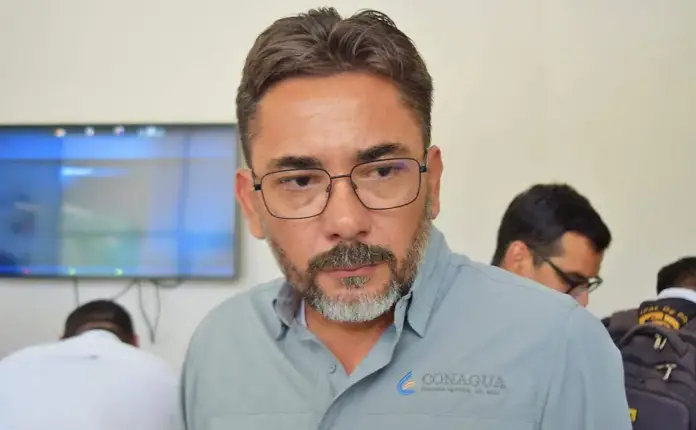Representative Sergio Huerta Leggs of the National Regeneration Movement (Morena) called for the removal of Julio César Villarreal Trasviña, director of the National Water Commission (Conagua) in Baja California Sur, and asked the Anti-Corruption and Good Government Secretariat to conduct a comprehensive audit.
He explained that the closure of two wells in the Migriño Ejido, municipality of Los Cabos, affected the water supply by truck to dozens of working-class neighborhoods in Cabo San Lucas and was carried out arbitrarily.
“The delegate, adopting legalistic and completely arbitrary attitudes, closed two wells that supply water to that ejido and to more than 60 neighborhoods that lack a water network,” Huerta stated.
The legislator emphasized that on August 6, a federal judge granted a definitive suspension of the injunction 936/2025 filed by the ejido (communal community), which allowed the wells to be reopened for agricultural use, subject to compliance with the concession parameters.
He announced that he will organize working groups with federal and municipal authorities and, if necessary, will go to Mexico City to request the intervention of Conagua at the central level.
“If the tankers have nowhere to fill up, people are left without water… and who pays the cost? The citizens,” said the legislator, warning of rising service costs due to the search for more distant sources.
Conagua’s Response
Local director Julio César Villarreal Trasviña defended Conagua’s actions and affirmed that the closures and inspections adhere to the National Water Law and the priority of uses: first domestic and public-urban uses; then livestock and agricultural uses.
He noted that recent inspections revealed irregularities such as missing meters, uses other than those authorized, and unlicensed uses, all of which warrant closure.
“We manage the nation’s waters and verify that the conditions of the water titles are met. Where there is no concession, there is closure,” he explained.
The official emphasized that, by mandate of Article 115 of the Constitution, the supply of water to the population is the responsibility of municipal utilities, not private individuals.
“Distribution by tanker truck should be the exception, not the rule, because it is the most expensive option. Our strategy is to increase the allocation volumes to the municipalities so they can provide the service.”
He added that Conagua has filed criminal complaints arising from its inspections and cannot detail the criminal charges while the proceedings are ongoing. He called for evidence to be provided to denounce any attempt at corruption and asked that the issue not be politicized.
In addition, he warned of health risks associated with water transportation and stated that tanks have been identified that previously transported treated wastewater and were later used for primary water, which he described as serious and subject to verification by the competent authority.
What’s next?
Congress will convene municipal and federal authorities to review the Migriño case and the regularization routes. “This is not a political issue; it’s a matter of a short-term solution because temperatures are getting worse,” emphasized Representative Sergio Huerta Leggs.
Conagua announced that it will continue administrative and criminal proceedings; the delegation affirmed that it will communicate results when there are final resolutions.
In addition, the federal agency stated that tanker operations coordinated with municipalities will continue while works are carried out and concession adjustments are made.
The wells reopened under the injunction, but the substance of the administrative litigation is still ongoing and will depend on whether the use and volumes comply with the concession.

Source: oem




